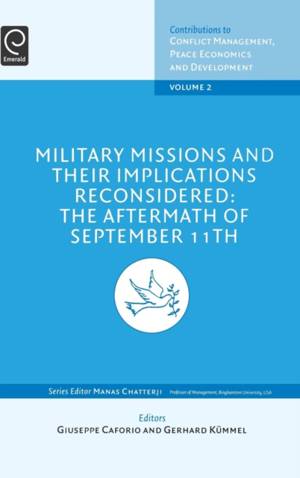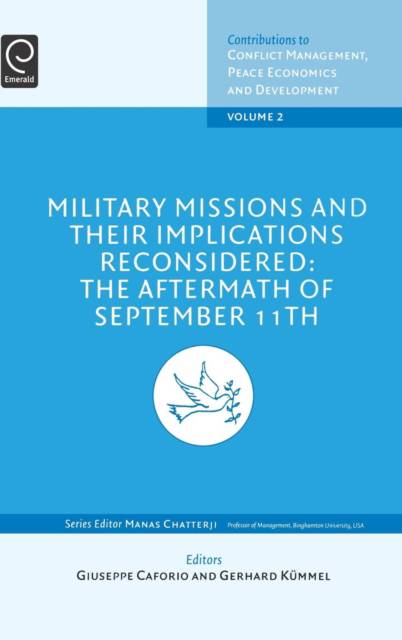
En raison d'une grêve chez bpost, votre commande pourrait être retardée. Vous avez besoin d’un livre rapidement ? Nos magasins vous accueillent à bras ouverts !
- Retrait gratuit dans votre magasin Club
- 7.000.000 titres dans notre catalogue
- Payer en toute sécurité
- Toujours un magasin près de chez vous
En raison de la grêve chez bpost, votre commande pourrait être retardée. Vous avez besoin d’un livre rapidement ? Nos magasins vous accueillent à bras ouverts !
- Retrait gratuit dans votre magasin Club
- 7.000.0000 titres dans notre catalogue
- Payer en toute sécurité
- Toujours un magasin près de chez vous
Military Missions and Their Implications Reconsidered
The Aftermath of September 11th
289,95 €
+ 579 points
Description
Since the suicide terrorist attacks of September Eleven, security issues have become more prominent again. There is also an increased interest in the military, since the military was and still is seen as a major instrument in the so-called, 'war on terror'. The anthology focuses on the most recent developments in the military sphere and tries to assess the impact of September Eleven and the 'new military missions' on the armed forces in terms of, inter alia, conflict management capabilities, social and psychological developments inside military units, recruitment and civil-military relations of the armed forces in the wake of September 11th. The contributions to this anthology represent the most important and pertinent papers presented at an international meeting organized by the RC 01: Armed Forces & Conflict Resolution within the International Sociological Association (ISA) which took place in Ankara, Turkey, in July 2004.They focus on the most recent developments in the military sphere and try to assess the impact of September Eleven and the 'new military missions' on the armed forces in terms of, inter alia, conflict management capabilities, social and psychological developments inside military units, recruitment and civil-military relations. The book is composed by seven chapters. First comes a chapter devoted to conflict resolution. The second chapter deals with the international military activities and their impact on and consequences inside the military institution. The third chapter is devoted to presenting the first results of an empirical, cross-national research project on the divide between the armed forces and their parent societies and on the cultural dimensions of this gap. Families and women in war and in armed forces are the subject of the following chapter. The representation of the interest of military personnel on the agenda is dealt with in the fifth chapter. Several national case studies constitute the contents of the sixth chapter which is particularly focusing on third world countries. The last chapter entails papers which deal with Turkey and its armed forces in various ways. This series publishes both theoretical and empirical papers on conflict and peace related to economic, social and political development, primarily of the developing countries. The role of uneven distribution of resources, inequity in income distribution, social and political discrimination, poverty, and arms spending on conflict within and between countries is covered. The focus is on conflict and its management and possible resolution.
Spécifications
Parties prenantes
- Editeur:
Contenu
- Nombre de pages :
- 606
- Langue:
- Anglais
- Collection :
- Tome:
- n° 2
Caractéristiques
- EAN:
- 9780444519603
- Date de parution :
- 01-11-05
- Format:
- Livre relié
- Format numérique:
- Genaaid
- Dimensions :
- 161 mm x 235 mm
- Poids :
- 1011 g

Les avis
Nous publions uniquement les avis qui respectent les conditions requises. Consultez nos conditions pour les avis.





